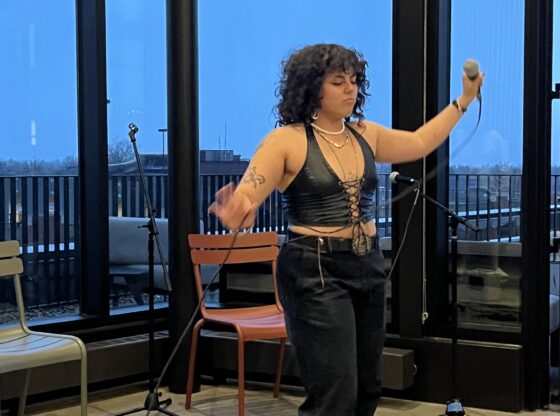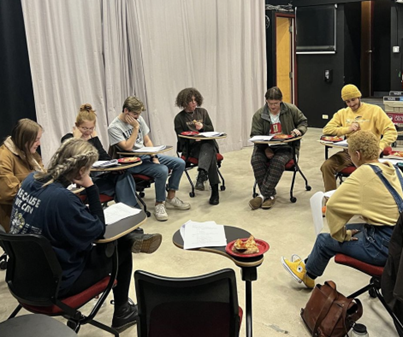 Photo by:
Photo by:
The play “Clybourne Park” by Bruce Norris foregoes all social niceties and political correctness to speak directly to the heart of racial issues in our present-day society.
By placing the first act in 1959 and the second in 2009, Norris confronts the audience with the question: What has really changed in terms of racial relations and discrimination in the past 50 years?
In the context of the play it would seem that circumstances have improved, but only minimally.
Fifty years ago the lines between races were clearly drawn and certain behavioral expectations were in place. Today we walk a thin line, fearful of using the wrong term or of making an offensive statement in what Norris describes as our “weirdly polite society.”
Dee Covington and Erick Sandvold both deliver delightful performances as Bev and Russ, an older couple who have lost their handicapped son to suicide in the first act. While doing little more than reclining in an armchair, Sandvold is perfectly convincing as begrudging and embittered. His outbursts of rage are equally on the mark; it is almost as difficult to take one’s eyes off of him as it is to keep from cringing.
The play as a whole comes off as witty, comical and painfully truthful. Norris cleverly maintains a healthy balance between more serious topics and a sense of lightheartedness. Audience members will walk away in a pleasant mood, while at the same time having a lot to think about.
Certain scenes spend prolonged periods of time discussing trivial topics to the point of frustrating the audience, such as in the first scene where an absurd amount of time is spent discussing the derivation of the term ‘Neapolitan’ of Neapolitan ice cream. Whether or not this serves any larger significance in the play, it is sure to hold the attention of the audience.
The slapstick humor and blunt social commentary recalls Oscar Wilde’s “The Importance of Being Earnest,” a play written in 1894 and similarly wrought with tongue-in-cheek satire.
Playwright Norris shares his thoughts on how racial relations have changed in the last half-century in an interview entitled “Freedom to Provoke,” with Beatrice Boss:
“Well, a lot of superficial changes have happened, to laws and to ways people have access to education and to public services, but what hasn’t changed and what stubbornly refuses to change are our natures,” said Norris. “We keep wanting to be around those we feel more comfortable with. If only legislation could change what we are actually like, but it can’t.”










